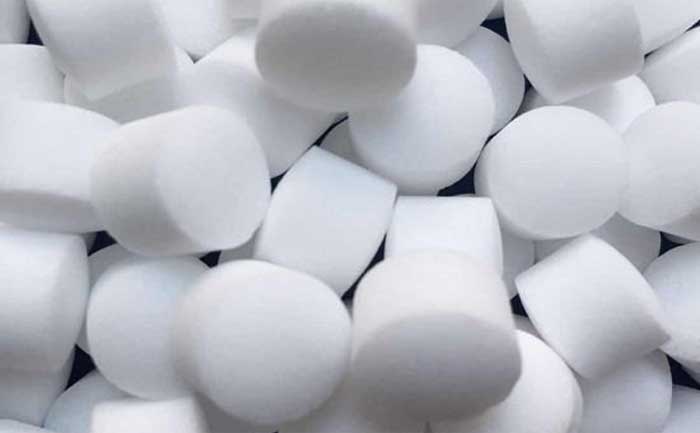Water softening and water treatment salt play crucial roles in improving water quality for both industrial and domestic use. Hard water, containing high levels of calcium and magnesium, can cause numerous problems. It leads to scale buildup in pipes, reduces the efficiency of water heaters, and affects the performance of appliances. To combat these issues, people rely on water softening systems that use salt to remove these hardness-causing minerals.
In water softening, salt performs a vital function. It helps regenerate the ion exchange resin inside the water softener, allowing it to trap calcium and magnesium ions. The salt releases sodium ions, which replace the hardness ions in the water, effectively softening it. This process ensures that water becomes free from the minerals that cause scale buildup and other problems. As a result, the softened water improves the efficiency of appliances like dishwashers, washing machines, and water heaters.
Water treatment salt comes in different forms, including tablets, crystals, and blocks, to meet various needs. People often choose salt tablets for their uniform size, which ensures even dissolution in water softening systems. This helps prevent clogs and ensures the system functions efficiently. Water treatment salt must be of high purity to prevent impurities from damaging the system or leaving residues behind.
In industrial applications, water softening is vital for maintaining equipment and ensuring smooth operations. Factories, power plants, and food production facilities all rely on softened water to protect boilers, cooling towers, and machinery from scale formation. Scale buildup not only reduces efficiency but also increases energy consumption and the risk of equipment failure. By using water treatment salt, these industries can extend the life of their equipment and reduce maintenance costs.
Households also benefit from using water softening salt. In homes, softened water prevents limescale from forming in pipes, faucets, and appliances. This not only improves the efficiency of water heaters but also reduces the amount of detergent needed for laundry and dishwashing. Softened water makes soap lather more easily, allowing people to use less while still achieving cleaner results. Over time, using water softening systems with salt can save homeowners money by reducing energy bills and appliance repairs.
Water treatment salt also contributes to environmental sustainability. By preventing scale buildup, softened water allows heating systems to work more efficiently, reducing energy consumption. Additionally, softened water requires less detergent, soap, and cleaning agents, reducing the amount of chemicals released into the environment. This makes water softening systems an eco-friendly option for both homes and businesses.
Choosing the right water treatment salt is essential for maintaining the efficiency of the softening system. High-purity salt ensures that the system functions optimally without leaving impurities behind. People can choose between solar salt, evaporated salt, and rock salt, depending on their water softening needs. Solar salt, produced through the evaporation of seawater, is often preferred for its purity and environmentally friendly production process. Evaporated salt, made through mining and processing, is another highly pure option. Rock salt, while less refined, remains effective for large-scale applications.
In water softening systems, regular maintenance is key to ensuring optimal performance. Users must regularly check and refill the salt in the brine tank to keep the system functioning. Neglecting to maintain the salt levels can result in inefficient water softening and increased scale buildup. Proper maintenance extends the lifespan of water softening systems and keeps them running smoothly.
In conclusion, water softening and water treatment salt play essential roles in improving water quality for both residential and industrial use. By removing hardness-causing minerals, water softening systems enhance the efficiency of appliances and reduce maintenance costs. High-purity salt ensures optimal performance, while regular maintenance keeps the system functioning smoothly. Additionally, water softening systems contribute to environmental sustainability by reducing energy consumption and chemical usage, making them a valuable investment for homes and industries alike.
Briefly Applications of Water Softening and Water Treatment Salt
Beyond residential water softening, this type of salt has various applications:
- Industrial Water Treatment: Industries use water softening salt to treat large volumes of hard water, which is necessary for processes such as cooling, boiler feed water treatment, and preventing scale buildup in industrial equipment.
- Municipal Water Treatment: Some municipal water treatment plants use water softening processes to reduce water hardness before distribution, ensuring that the water supplied to households and businesses is of higher quality.
- Food Processing: In the food industry, water softening is critical for processes that require high-quality, mineral-free water, such as in the production of beverages, dairy products, and certain canned goods.

